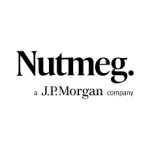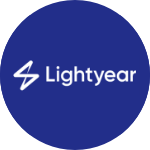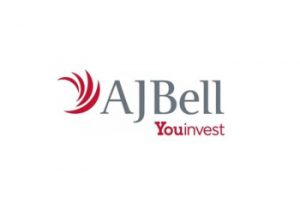Best ETF Funds – Top 10 Popular Picks
Exchange traded funds offer investors a low cost way of investing in funds. You can also benefit from the flexibility of being able to trade an ETF at any time.
We look at:
Top 10 Popular ETF Funds »
How To Choose The Best ETF Funds To Invest In Right Now? »
How To Buy Funds Online »
Top 10 Popular ETF Funds
Popular ETF Funds
| Fund Name | Ongoing Charge (OCF) | 1 Year Return* | 3 Year Return* | Factsheet |
|---|---|---|---|---|
| iShares Global Clean Energy ETF | 0.65% | 128.2% | 232% | |
| iShares Core FTSE 100 ETF | 0.07% | -11.5% | -6.1% | |
| Vanguard FTSE 100 ETF | 0.09% | -11.6% | -6.2% | |
| iShares Physical Gold ETC | 0.16% | 12% | 41.1% | |
| L&G Battery Value Chain ETF | 0.49% | 69.2% | 67.3% | |
| WisdomTree FTSE 100 3x Daily | 0.75% | -46.3% | -45.8% | |
| Vanguard S&P 500 ETF | 0.07% | 10.9% | 41% | |
| Vanguard FTSE All-World ETF | 0.22% | 8.9% | 26.9% | |
| Vanguard FTSE 250 UCITS ETF | 0.10% | -4% | 5.6% | |
| WisdomTree Battery Solutions ETF | 0.40% | N/A | N/A |
To help with your decision making we look at the most popular 10 funds that were bought in January 2021 by Interactive Investor users in an ISA, SIPP or Trading Account.
Please note the list does not include investment trusts or exchange traded funds (ETFs).
How To Choose The Best ETF Funds To Invest In Right Now?
As with all investing before you press the buy button, you should ask why you are investing and what you want to get out of it.
Do you have an objective in mind? If it is for a house deposit and you are looking to buy in the next 5 years, or if you are investing for your retirement in 20+ years then these are two different objectives which require a different approach.
What is your tolerance to investment risk? If you can’t abide big swings in your investment fund portfolio then a cautious investment approach may be the way to go.
Fund charges are worth taking into consideration as over time the compound affect on your money can be significant. The lower the ongoing charges (OCF) the better.
ETFs offer investors the opportunity to invest in a basket of shares or bonds typically tracking an index e.g. the FTSE 100.
ETFs are typically low cost and flexible e.g. the iShares Core FTSE 100 ETF (LSE:ISF) has an ongoing charge of 0.07% while the Vanguard S&P 500 UCITS ETF (LSE:VUSA) allows you to access the largest companies in the USA at the same ongoing charge.
ETFs are also easy to buy and sell. With a normal investment fund when you buy or sell you need to wait until the next trading point which is typically at the end of the day. With an ETF like a share you can buy or sell at any time during the day.
How To Buy ETF funds Online
Today’s investor in 2021 has a lot of options to choose from.
You can invest in a ETF directly or via a tax wrapper such as an ISA or self Invested Personal Pension. If you are investing on behalf of a child you can invest via a junior ISA or junior SIPP.
You can invest using an investment platform typically from £25 pm.
One of the key considerations is cost. However picking the “cheapest” is not as simple as it sounds, as each platform has its own costing model which often makes it difficult to compare like for like.
Other considerations include:
- How easy is the platform to use and what tools and research is on offer
- What fund discounts are there? different platforms have negotiated different discounts on funds
- Customer reviews – useful in understanding strengths and weaknesses of platform providers
- Level of customer service provided
Below we have outlined what can expect to pay in charges for 4 of the UK’s largest most popular investment platforms based on investing in the iShares Core FTSE 100 ETF.
| Investment Platform | Platform Fees | iShares Core FTSE 100 Ongoing Fund Charge | Annual Charge on £10,000 | Annual Charge on £40,000 | Annual Charge on £100,000 | Annual Charge on £250,000 |
|---|---|---|---|---|---|---|
| Interactive Investor | £9.99 pm flat fee | 0.07% | £127 | £155 | £190 | £295 |
| Hargreaves Lansdown | 0.45% up to £249,999, reducing to 0.25% from £250,000 to £1m | 0.07% | £52 | £208 | £520 | £1300 |
| AJ Bell | 0.25% on first £250K | 0.07% | £32 | £128 | £320 | £800 |
| Fidelity | 0.35% from £7,500 to £249,999, reducing to 0.2% from £250,000 to £1m | 0.07% | £42 | £164 | £420 | £675 |
As you can see the right platform for you will depend on how much you are investing.
5 Easy Steps To Invest In ETF Funds
Our view: The next generation of online platform apps means you can get setup & buy ETFs in as little as 10 minutes!
- Select a fund platform – See below 3 top platform picks
- Open your fund account – To do this you will need your bank details and national insurance number
- Fund your account – You will need to fund your a/c with a debit or credit card or bank transfer
- Search for the ETF stock code you wish to invest in – Type in the stock code you wish to buy. e.g. For the Vanguard FTSE 100 UCITS ETF the stock code is VUKE
- Buy the ETF you want – Nice and easy!
3 top picks for buying ETFs
Buy ETFs
- Buy Funds
- Maximum annual charge of 0.45%
- Over 2,500 funds to choose from
Buy ETFs
- Buy Funds
- Account fee of £9.99 pm (Covers you for mutiple accounts)
- 1 free trade pm
- Over 3,000 Funds To Choose From
Buy ETFs
- Buy Funds
- Account fee – maximum of £3.50 pm (Based on value of shares held)
- Over 2,000 funds to choose from
IMPORTANT:
No news, feature article or comment should be seen as a personal recommendation to invest. Prior to making any decision to invest, you should ensure that you are familiar with the risks associated with a particular plan. If you are at all unsure of the suitability of a particular product, both in respect of its objectives and its risk profile, you should seek independent financial advice.
The value of shares, ETFs and ETCs bought through a share dealing account, a stocks and shares ISA or a SIPP can fall as well as rise, which could mean getting back less than you originally put in. Past performance is no guarantee of future results.
Spread bets and CFDs are complex instruments and come with a high risk of losing money rapidly due to leverage. Between 67%-75% of retail investor accounts lose money when trading CFDs. You should consider whether you understand how spread bets and CFDs work, and whether you can afford to take the high risk of losing your money. Professional clients can lose more than they deposit. All trading involves risk.
Tax treatment of ISAs depends on your individual circumstances and is based on current law which may be subject to change in the future. ISA transfer charges may apply, please check with your provider.
Tags








